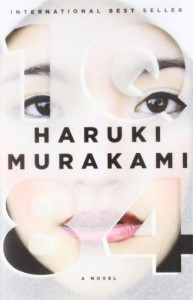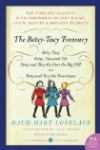11
Followers
23
Following
Reading Slothfully
I was told in elementary school that I only could read at half the speed for success in college. Oh well, one benefit of slow reading is you get to live with the characters a longer period of time. I read in a vain attempt to better understand people. At my other homes, I'm known as a spouse, pop, guy in the choir, physical chemist, computer/web dilettante and child-care provider. In theory, I'm a published author, if you consider stuff like Quenching Cross Sections for Electronic Energy Transfer Reactions Between Metastable Argon Atoms and Noble Gases and Small Molecules to count as publications. I've strewn dozens of such fascinating things to the winds.
Currently reading
Twenty Thousand Leagues Under the Seas
The Spirit of the Border
Ramona the Brave (Ramona, #3)
The Underground Man (Vintage Crime/Black Lizard)
Delilah of the Snows
Mrs. Miniver
Betsy-Tacy Treasury (P.S.)
A Christmas Carol
The Way Some People Die
Envy of Angels
1Q84
 Murakami is awesome. So much so that I actually own all but a couple of his books. Even his What I Talk about when I Talk about Runningis worth owning. Having said that, 1Q84is not Murakami's best book ever, so it really deserves only a 5*- rating, not a full 5*. It's difficult to describe what makes Murakami work. His stories are mostly about ordinary people doing ordinary things. But, there's always something unreal that creeps into the stories, something a bit unreal in the characters and something unreal in their surroundings.
Murakami is awesome. So much so that I actually own all but a couple of his books. Even his What I Talk about when I Talk about Runningis worth owning. Having said that, 1Q84is not Murakami's best book ever, so it really deserves only a 5*- rating, not a full 5*. It's difficult to describe what makes Murakami work. His stories are mostly about ordinary people doing ordinary things. But, there's always something unreal that creeps into the stories, something a bit unreal in the characters and something unreal in their surroundings. In this particular book, the characters, Aomame and Tengo, somehow slip into an alternate world in which, among other things, there are two moons. It takes a while to figure out that they aren't in the real world any longer. It takes a while to figure out what the relationship is between these two people whose lives we're following in alternate chapters. But taking these whiles to figure things out make for compelling reading. Eventually, it all makes sense, in some rather surreal way. A side effect of this book is that one will also find him- or herself compelled to find a recording of Janáček's Sinfonietta. So, to help you out, I've already provided a link.
If you've never read Murakami, perhaps you should begin with Wind Up Bird Chronicle, Kafka on the Shore, or Hard Boiled Wonderland and the End of the World. If you have read Murakami before, then why have you not read 1Q84yet?













